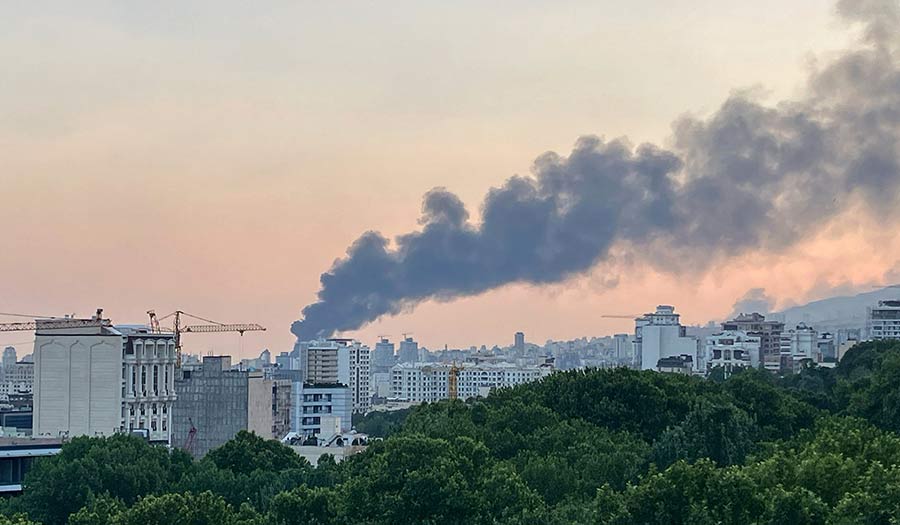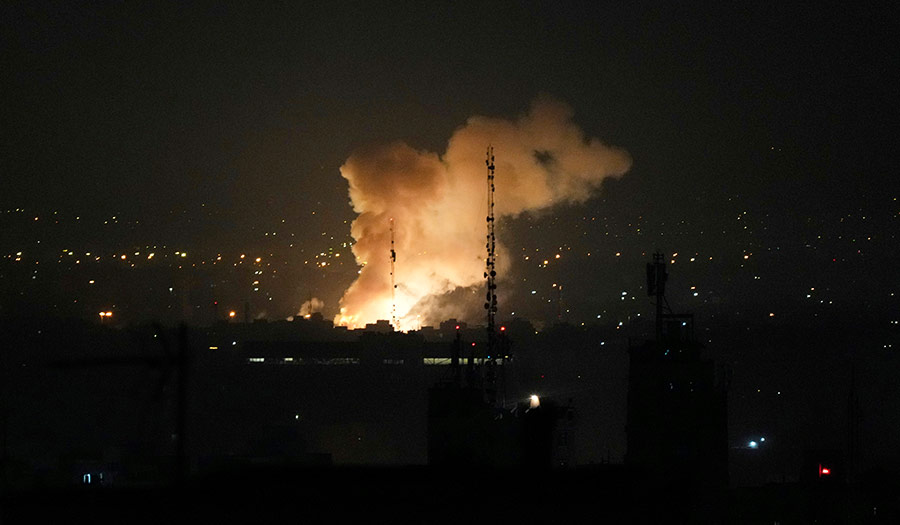 AP
AP
World News Desk
Learn the why behind the headlines.
Subscribe to the Real Truth for FREE news and analysis.
Subscribe NowDUBAI, United Arab Emirates (AP) – As Israel pounds Iran with airstrikes targeting military facilities and its nuclear sites, officials in Tehran have proposed a variety of steps the Islamic Republic could take outside of launching retaliatory missile barrages.
Those proposals mirror those previously floated by Iran in confrontations with either Israel or the United States in that last few decades. They included disrupting maritime shipping through the Strait of Hormuz, potentially leaving the Nuclear Nonproliferation Treaty and other attacks by militants.
Here is a look at what those options could mean—both to Iran and the wider Middle East.
Targeting the Strait of Hormuz
The Strait of Hormuz is the narrow mouth of the Persian Gulf, through which some 20 percent of all oil traded globally passes.
The strait is in the territorial waters of Iran and Oman, which at its narrowest point is just 21 miles wide. The width of the shipping lane in either direction is only 2 miles. Anything affecting it ripples through global energy markets, potentially raising the price of crude oil. That then trickles down to consumers through what they pay for gasoline and other oil products.
There has been a wave of attacks on ships attributed to Iran since 2019, following President Donald Trump’s decision to unilaterally withdraw the U.S. from the 2015 Iran nuclear deal and reimpose crushing sanctions on Tehran.
U.S. forces routinely travel through the strait, despite sometimes-tense encounters with Iran’s Revolutionary Guard, a paramilitary force answerable only to Supreme Leader Ayatollah Ali Khamenei. The U.S. Navy’s Bahrain-based 5th Fleet conducts those operations, known as freedom of navigation missions, to ensure the waterway remains open to business. Iran views those passages as challenging its sovereignty—as if it operated off the coast of the U.S.
Since the Israeli attacks began, Iranian officials have repeatedly raised blocking the strait—which likely would draw an immediate American response.
Withdrawal from the Nuclear Nonproliferation Treaty
Experts fear Tehran could respond to the strike by deciding to fully end its cooperation with the International Atomic Energy Agency, abandon the Nuclear Nonproliferation Treaty and rush toward a bomb.
As a member of the treaty, Iran is obligated to explain the any radioactive traces outside of declared sites and to provide assurances that they are not being used as part of a nuclear weapons program. Iran insists its program is peaceful, though it is the only non-nuclear-armed state to enrich uranium up to 60 percent, a short, technical step away from weapons-grade levels of 90 percent. U.S. intelligence agencies and the IAEA assess Iran has not had an organized military nuclear program since 2003.
There is precedent for the concern. North Korea said it withdrew from the treaty in 2003 and tested a nuclear weapon in 2006.
However, again, if Iran withdrew from the treaty, it could draw the U.S. into the fight, something Tehran so far has been seeking to avoid.
Asymmetric Attacks by Militants
Iran could encourage more asymmetric attacks, targeting Jewish tourists, synagogues or Israeli diplomatic missions as it has done in the past. However, it has been a rough few years for those forces.
Iran’s allies, the self-described “Axis of Resistance,” have been severely hurt by ongoing Israeli attacks since the October 7, 2023, Hamas attack on Israel, particularly Lebanon’s Hezbollah and Hamas in the Gaza Strip. Iran has long used those groups as both an asymmetrical way to attack Israel and as a shield against a direct assault.
Iraqi groups backed by Iran so far have not gotten involved, leaving just Yemen’s Houthi rebels as the only member of the axis to launch attacks on Israel since its campaign against Iran began.
- World News Desk
- MIDDLE EAST
 Israel Attacks Iran’s Nuclear Sites and Its Top Military Leaders. Iran Retaliates with Drones
Israel Attacks Iran’s Nuclear Sites and Its Top Military Leaders. Iran Retaliates with Drones
More on Related Topics:
- Explainer: What’s Next for the Gaza Ceasefire, and Will the Truce Last?
- Gaza Truce Progress Slow as Israeli-Hamas Violence Persists
- Situation for Mothers and Babies in Gaza Has ‘Never Been Worse,’ says UNICEF
- For the First Time, the World’s Food Crises Authority Announces a Famine in Gaza
- What to Know About Israel’s Plan to Retake Gaza City


